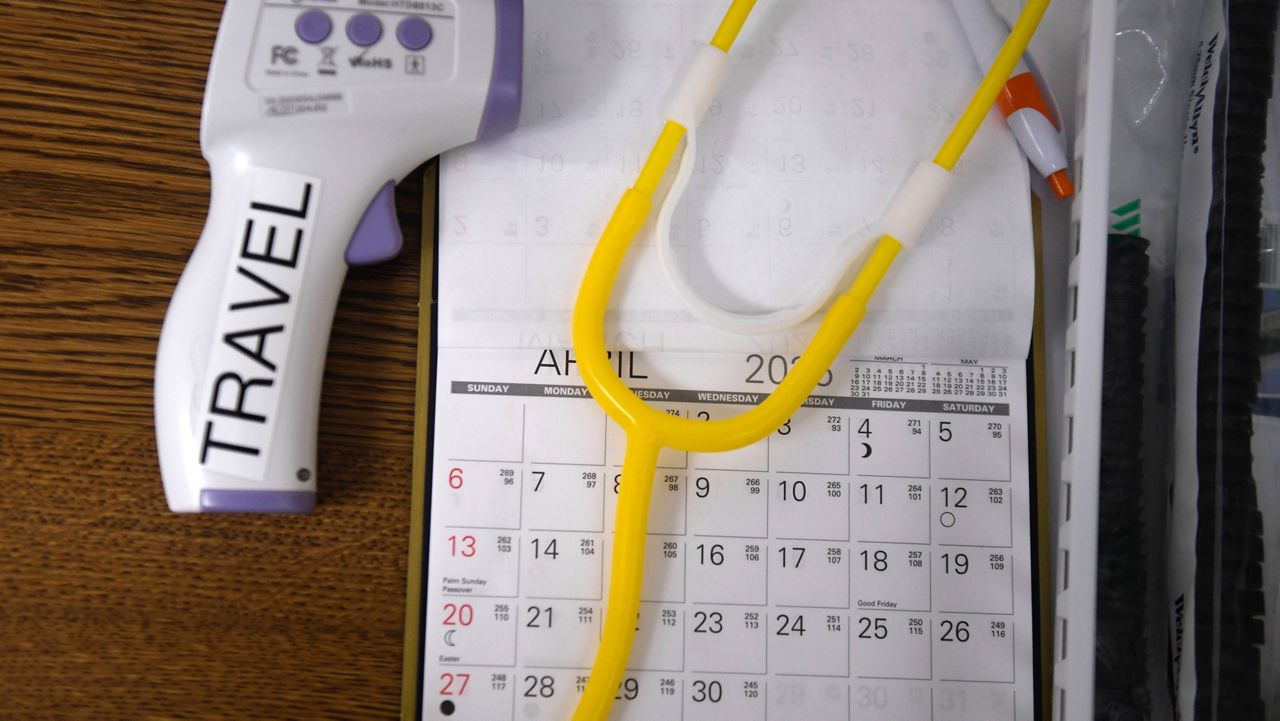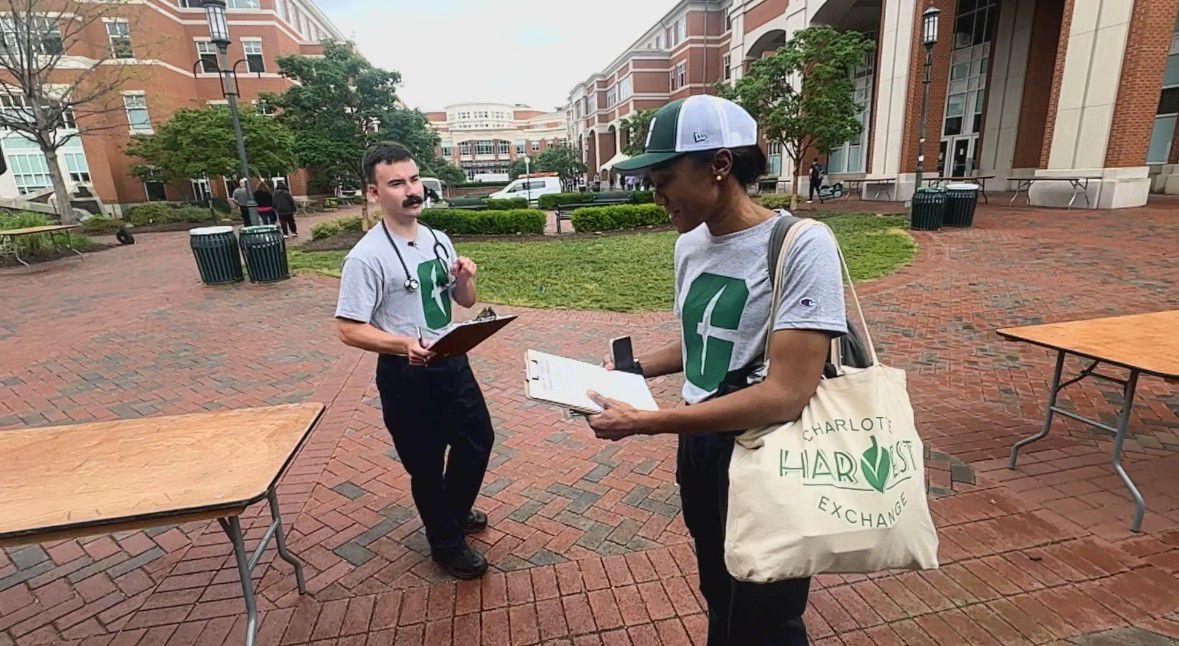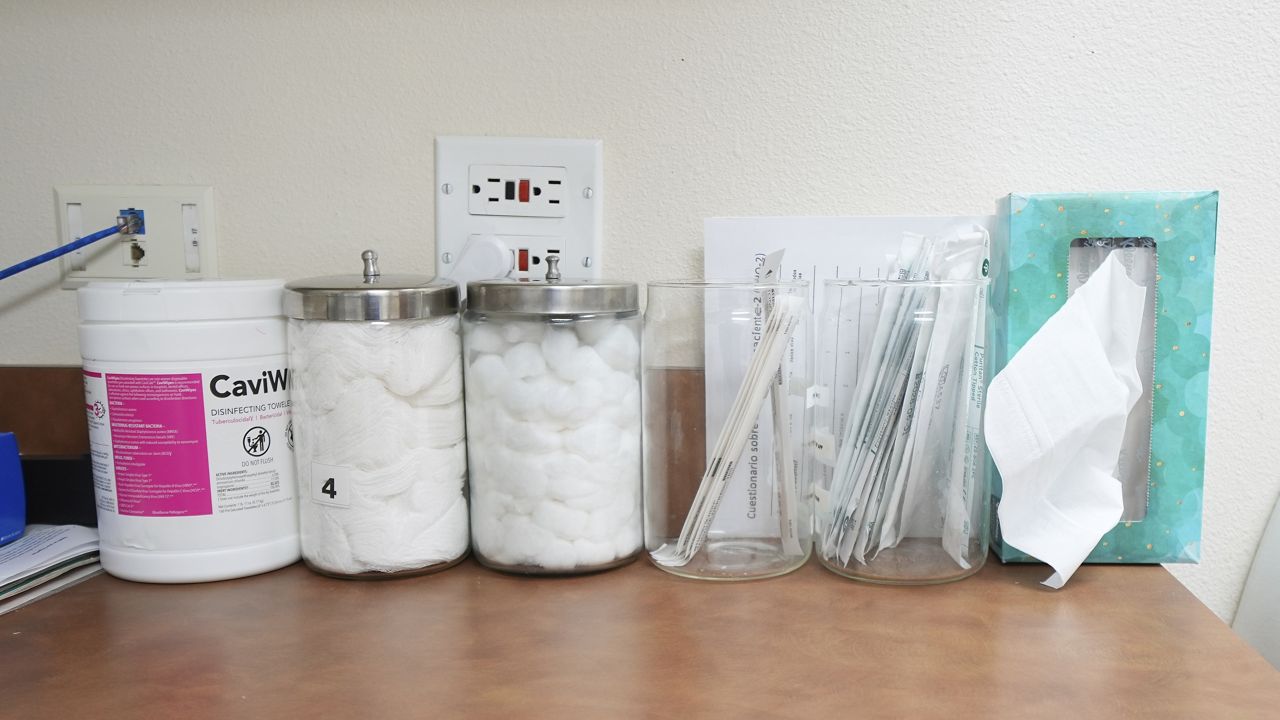Nearly 20% of children in Durham experience hunger every day. The same goes for 12% of boys and girls in wake county.
These percentages are according to a statistic from Feeding America, a nonprofit organization that tracks hunger trends. It’s linked to over 200 food banks across the country.
What You Need To Know
- Organizers held the Duke Community Health Summit earlier this month
- The summit is a collection of voices sharing a diversity of people’s food needs
- La Semilla is working to get food to Spanish-speaking families who often run into a language barrier when seeking help
Earlier this month, community members met during a health summit to talk about the issue.
Experts say the difficulty of locating nutritious foods is real — and things may get worse.
During the Duke Health Community Health Summit, speaker Dr. Eugene Washington said collaborations lead to innovations.
Washington said some in Spanish-speaking communities may go hungry because they can’t reach those who can’t understand them.
La Semilla is one group based out of Durham working to handle the problem.
At a food drive earlier in the month, cars lined up at a mobile home park just inside Raleigh’s city limits. Laura Jaimes, a food coordination volunteer with the La Semilla group, rolled up her sleeves once again.
“When the pandemic started, we started working together,” Jaimes said.
A translation on Google will reveal the meaning of La Semilla in English is “The Seed." Jaimes shared that La Semilla relies heavily on donations to feed predominately non-English-speaking families.
The leaders of the group will post on Facebook so people know when and where they hold their food drives, and the text will be in Spanish.
“I love to wake up and come to help the people because I think that is one of the things that we have to keep doing it,” Jaimes said.
Jaimes said their crew can handle anywhere from 100 to 200 cars total in an hour to an hour and a half.
“We just try to put different things (in the boxes) for the people to cook,” she said. Organizers will pack anything from canned goods, bread, COVID-19 testing kits and even dog food. These volunteers hand out a wide range of goods a household may need. One car rolled in as another rolled out.
“We don’t make it hard for them,” Jaimes said.
But hunger doesn’t roll away this easily. As someone who immigrated to this country, Jaimes understands the importance of good messaging.
“I come from a single mother. It’s hard to handle it sometimes. You have to choose to go to work, pay the rent or buy good food for your family. It’s really hard,” she said.
The director of La Semilla, Pastor Edgar Vergara Millán, said the need is raw and real.
“There was clearly a very urgent and basic need for food,” Pastor Millán said.“There was clearly a very urgent and basic need for food,” Pastor Millán said.
Millán joined a panel of speakers at the community health summit to talk openly about their various needs. The pastor said you will never think of food the same when you learn there are always hungry mouths to feed.
When the pandemic forced the service industry to close, many Latino and Latina families went without food.
“It is amazing to me that in the most affluent nation in the world, people go hungry,” Millán said.
At the beginning of the pandemic, Millán said he created Iglesia La Semilla, but needed funding in order to stay afloat. The director immediately had to look for cash. He said a small grant from the United Methodist Conference gave them money to buy culturally relevant items for basic food boxes.
They say they’ve been working hard ever since, but that still doesn’t solve the ongoing issue. The Duke Health Community Health Summit earlier this month gave policymakers, faith leaders, representatives from health systems and others a chance to attack food insecurity.
And while they’re hoping better days are ahead for all families, La Semilla organizers say they will continue to work hard helping them in the meantime.
“People do what people do. Join hands and come together for the support of the community,” the pastor said.
Jaimes said they always try to do all of their work in the neighborhoods most affected by a lack of food resources.
The volunteer says she relates to the families she helps feed on several levels, saying that when people feel welcome, they will show up.
“Sometimes you don’t have food to feed your kids. This is the way, ‘God, talk to me’. I can just go over there and grab a box, and God provide(s). God is always going to provide,” she said.










